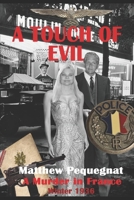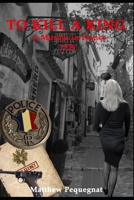In the Image That You Missed: Translated by Eechae Ra
She is a famous Korean poet and potter.
She has gained a wide understanding of various environments, humans and cultures by traveling around the world. They all provided her poetic motifs. And also as a potter, she combines pottery and poetry.
She has published 10 collections of poems: "The Combination of the Resonance and Color," "Between Today and Tomorrow," "This Time That's Coming," "And a Meeting," "There Is a Sorry Evening," and English collections "Hello, Life," "When I Am Dyed with His Words," "Again, B.C.," "Wasn't It Me in a Former Life,"and "In the Image That You Missed (Amazon Kindle Edition).
She has won many awards: the Korean Literature Prize, the Korean Women's Literature Prize, the PEN Literature Prize, Nosan Literature Prize, the Korean Essays Literature Prize, Dong-po Literature Prize, HeoNanSeolHeon Prize, 2020 the Ditingushed Poet Prize, etc.
She has gained a wide understanding of various environments, humans and cultures by traveling around the world. They all provided her poetic motifs. And also as a potter, she combines pottery and poetry.
She has published 10 collections of poems: "The Combination of the Resonance and Color," "Between Today and Tomorrow," "This Time That's Coming," "And a Meeting," "There Is a Sorry Evening," and English collections "Hello, Life," "When I Am Dyed with His Words," "Again, B.C.," "Wasn't It Me in a Former Life,"and "In the Image That You Missed (Amazon Kindle Edition).
She has won many awards: the Korean Literature Prize, the Korean Women's Literature Prize, the PEN Literature Prize, Nosan Literature Prize, the Korean Essays Literature Prize, Dong-po Literature Prize, HeoNanSeolHeon Prize, 2020 the Ditingushed Poet Prize, etc.
Format:Paperback
Language:English
ISBN:B09SGLKL7K
ISBN13:9798417450662
Release Date:February 2022
Publisher:Independently Published
Length:252 Pages
Weight:0.82 lbs.
Dimensions:0.6" x 6.0" x 9.0"
More by Matthew Pequegnat
Customer Reviews
2 customer ratings | 2 reviews
There are currently no reviews. Be the first to review this work.



























